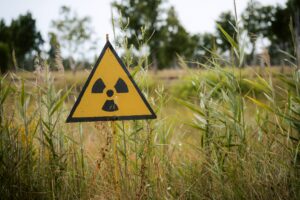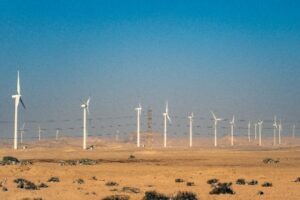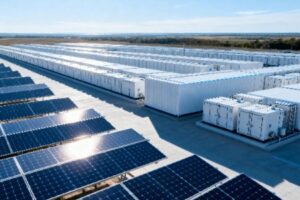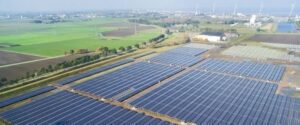Nuclear setback, U.S.-China climate talks, EV dealer hesitations — This Week in Cleantech


(Courtesy: Killian Karger/Unsplash)
This Week in Cleantech is a new, weekly podcast covering the most impactful stories in cleantech and climate in 15 minutes or less. Produced by Renewable Energy World and Tigercomm, This Week in Cleantech will air every Friday in the Factor This! podcast feed wherever you get your podcasts.
This week’s episode features Washington Post climate reporter Shannon Osaka, who reports why car dealer skepticism could be one of the biggest threats to electric vehicle adoption.
This week’s “Cleantecher of the Week” nomination comes from Electric Power Engineers CEO Hala Ballouz for a member of her team: Sarah Chatterjee, Director of Electrification Strategies and Programs at Electric Power Engineers. Sarah and her team’s work with Paducah Power System on EV Readiness is creating a plan that will be a blueprint to helping others across the industry with their electrification journey. The plan forges a path that combines technical expertise with a commitment to diversity, equity, and affordability – where electric mobility is not only reliable but also genuinely represents the needs and wants of the community. Congratulations to Sarah Chatterjee, our Cleantecher of the Week.
Send your nominations for “Cleantecher of the Week” to thisweekincleantech@tigercomm.us
This Week in Cleantech — Nov. 17, 2023
NuScale, a developer of small modular nuclear reactors (SMRs), canceled their Carbon Free Power Project, citing a lack of subscribers. The project would have been the first commercial SMR in the country. Critics responded to the news by questioning the economic and safety feasibility of the new technology.
The Department of Energy (DOE) remains supportive of the technology, emphasizing its commitment to other SMR developers. Despite NuScale’s setback, the Nuclear Regulatory Commission (NRC) notes overall progress in developing the advanced nuclear industry. The Biden administration continues to project a tripling of nuclear power by 2050.
NuScale insists progress was made that can benefit other initiatives. Other SMR developers, such as TerraPower and Westinghouse, are moving ahead with their own projects, but only Nuscale’s design has been approved by the NRC so far. Utilities, including Duke Energy and the Tennessee Valley Authority, view SMRs as crucial for emissions reduction and meeting future energy demands.
U.S. and China, the top global polluters, agreed on a goal to triple global renewable capacity by 2030, emphasizing urgency in transitioning away from coal and other pollutants. The agreement signals China’s first commitment to pollution reduction targets.
Both countries expressed concern over climate impacts and reaffirmed their commitment to the Paris Climate Agreement. The move positions the countries as pivotal players in limiting global warming to 1.5°C.
Stock in Plug Power, a hydrogen producer, dropped 45% last Friday. At least five analysts downgraded the stock, citing hydrogen shortages and delays in expected DOE financing.
Plug Power’s troubles add to a series of setbacks in the clean energy sector, which has seen market valuations tumble. Plug Power’s CEO, Andy Marsh, highlighted “enormous challenges” in hydrogen supply. Power outages impacted one-third of U.S. liquid supply, including at Plug Power’s Tennessee plant, but they’re optimistic about a year-end recovery.
Hydrogen supply challenges, highlighted by Plug Power’s CEO, contribute to declining shares across the hydrogen sector.
Watch the full episode on YouTube
China’s $80 billion investment in clean energy manufacturing last year is fueling a surge in solar production from unconventional participants, including a dairy giant, a jewelry chain, a pollution-control equipment producer, and a pharmaceutical company.
The rapid expansion has led to a glut of solar components, leading to a 50% drop in the price of the foundational material for solar panels, polysilicon, and a 40% decrease in panel prices since the beginning of the year. The oversupply is impacting manufacturers globally, particularly in Europe, hindering efforts to establish solar manufacturing outside China.
Car dealers resisting electric vehicles pose a challenge to the Biden administration’s aim of having two-thirds of new cars sold as electric by 2032. Reports indicate dealerships lack preparation for the electric transition, with some customers sharing experiences of being steered away from electric cars.
A survey by the Sierra Club reveals that 66% of dealerships did not have an electric vehicle for sale. Frustrated buyers cite dealers redirecting them to gas cars and providing inaccurate information. Lower maintenance requirements mean dealerships have less economic incentive to sell electric vehicles compared with gas-powered cars.




